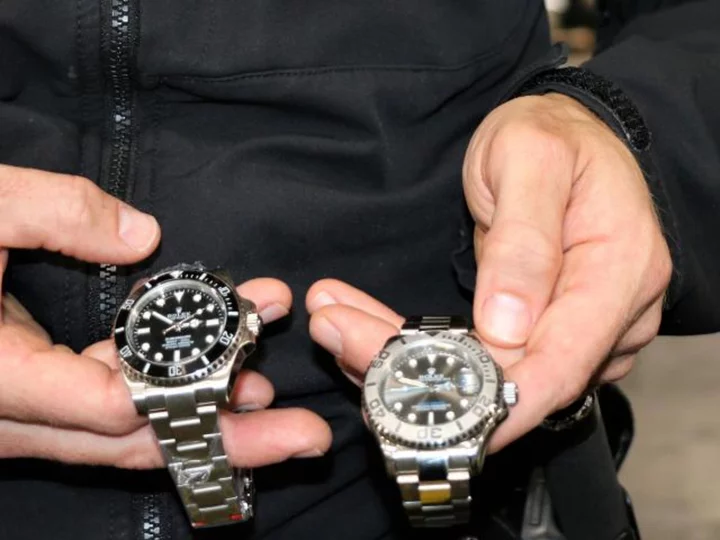Rolex or Faux-lex? US Customs and Border Protection officers in Los Angeles recently seized dozens of fake luxury watches that -- if they were legitimate -- would have been valued at more than $1.2 million, authorities said.
The 41 watches were shipped in individual packages via air cargo from China to various US destinations and were intentionally mislabeled to avoid detection at Los Angeles International Airport, CBP announced.
The counterfeit items discovered between April 12 and May 22 were falsely declared as bracelets, belts, walk clocks and decorations, according to a news release from the agency.
The shipment included lookalike versions of watches sold by Rolex, Omega and Patek Philippe, among other brands.
The Consumer Products and Mass Merchandising Center of Excellence and Expertise, whose specialists worked with CBP on the seizure, said the fake watches infringed on the registered trademarks for each of the impersonated brands, CBP reported.
"There are thousands of private sellers, collectors and other non-legitimate sources offering luxury watches on e-commerce platforms, making it extremely difficult for consumers to spot these fakes," Carlos C. Martel, CBP director of field operations in Los Angeles, said in the news release.
"Consumers should know that buying fake watches is never a good idea, don't waste your money," Martel said.
Watches and jewelry were the top products seized by CBP in 2022, with seizures valued at more than $1.14 billion.
Last year, nearly 21,000 shipments were seized by CBP containing 25 million goods that violated intellectual property rights, the agency said. The goods would have been worth almost $3 billion if they were legitimate.
The drawbacks of buying fake watches include allergic reactions from wearing cheap metals and easily broken items due to shoddy craftsmanship, authorities said.
Counterfeits could also expose consumers to malware or ransomware if purchasing from illegitimate websites, according to CBP.
"While it may seem innocent, the money you spend on counterfeit products often funds criminal activity, from forced labor, human and drug trafficking to violent crime," said Cheryl Davies, CBP port director of LAX, in a statement.









